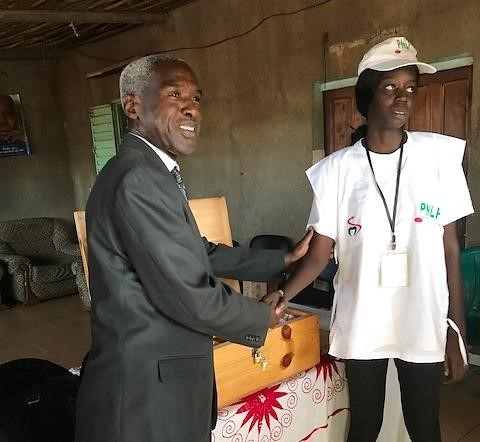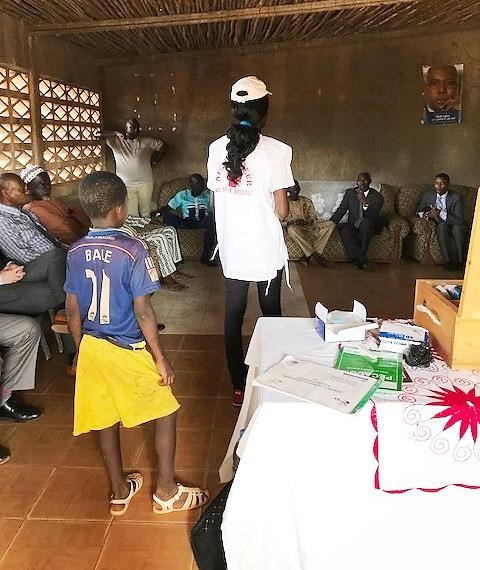U.S. Ambassador to Senegal, Tulinabo Mushingi, recently toured the region of Kédougou to see various U.S. Government activities and programs being implemented in the region. Ambassador Mushingi visited Mame Diarra Mansaly, a community health worker known as a home-based malaria care provider (DSDOM), to take a closer look at how the interventions of DSDOMs at the community level are contributing to the reduction of malaria in the region with support from PMI.
Mame Diarra explained that she performs rapid diagnostic tests and administers treatment for cases of positive, uncomplicated malaria, referring all negative and severe cases to the nearest health post. During these visits, she also encourages the community to use proven effective prevention methods, such as long-lasting insecticide-treated bed nets.
DSDOMs are active in regions in Senegal with high rates of malaria transmission. They perform active case detection by visiting households in their communities every week before community members exhibit symptoms of malaria.
DSDOMs are part of the home-based case management of malaria program also known as PECADOM, developed by Peace Corps volunteers in Saraya, in Kédougou region in 2008.
Due to the success of the approach, the DSDOMs now also treat cases of diarrhea and children’s respiratory infections.
After the presentation, the Ambassador discussed with the DSDOM, health officials, and community members the value of the home-based approach, the service received, and the DSDOM’s work and efforts to reduce malaria in Kédougou.
“This is a success story for Senegal and the model should be replicated around the world in the fight against malaria,” Ambassador Mushing said. PECADOM has since been contributing immensely in the fight against malaria in high transmission regions and across the health system.
M. Diallo, the head teacher of the Qur’anic school that Mame Diarra visited days before to treat two students that had malaria, said that he was happy with the approach. “I am very thankful for the program. The DSDOM came few days ago and screened the children. She found two cases and started the treatment. Today, you can see that my student is much better,” he said pointing at Abdou who was waiting for Mame Diarra to screen him.
Mr. Bacary Diémé another beneficiary who just recovered from malaria added that the program has helped him and his family a lot. “I did not know I had malaria though everyone in my household sleeps under treated bed-nets. Mame Diarra saved my life and that of my family because I showed no symptoms. I am grateful for that.”
“I want to call on everyone including local authorities and community members to clean our environment. Sanitation is part of the problem so we have to do more in that area to maintain our gains,” Diémé said.
Since 2008, the PMI-supported National Malaria Control Program of Senegal has been implementing the DSDOM program whose regular sweeps help in early detection, treatment, and prevention. Senegal has set 2020 as its goal for the pre-elimination of malaria.


